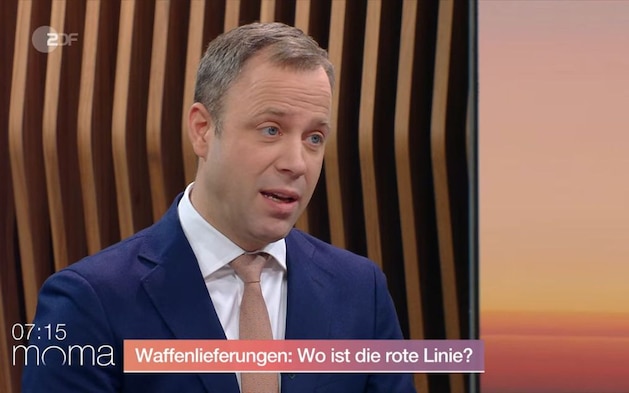National and international dissatisfaction with Chancellor Olaf Scholz’s (SPD) hesitation on the question of supplying tanks to Ukraine is growing. The opposition in particular does not shy away from criticism. This was also shown by a visit by the CDU General Secretary Mario Czaja to the ZDF “Morgenmagazin”: “We cannot understand the Chancellor’s hesitation,” said Czaja in an interview with Dunja Hayali on Monday: “It also costs lives on both sides.” It is important to have “a clear assessment of the situation”, but that is exactly what the Chancellor lacks: “There seems to be a lack of a real Federal Security Council that is also able to make a correct assessment with the existing think tanks in our country”, criticized Czaja: “We need that soon.”
One argument against the delivery of Leopard 2 tanks is the retaliatory measures announced by Russia, Hayali said: Over the past twelve months, the scope of demands from Ukraine has continued to increase: “Where would you be, the CDU or the Union the red line?”, the moderator wanted to know from her guest: “Where would you say: ‘That doesn’t exist.’?” The 47-year-old found a clear answer: “It is important for us that Germany does not become a party to the war, Instead, we support Ukraine together with our partners within the European Union within the framework of what is possible under international law.”
This support initially includes training on the battle tanks. After that, the delivery of the battle tanks was “the right step”. You also have to give approval to other countries that want to deliver. Foreign Minister Annalena Baerbock (Bündnis 90/Die Grünen) has already announced something similar. For Czaja, not becoming a party to the war means not sending any troops of your own, but limiting yourself to support “which is also permissible under international law”: “We must ensure that no war starts in Moldova or in the Baltic States,” warned the Union politician, because these are the next steps that Russian President Vladimir Putin had announced.
Czaja did not want to position himself clearly on the reconquest of Donbass and Crimea, as Ukraine is striving for: “The crucial thing is that Russia and Ukraine come to the negotiating table, and that is only possible if Vladimir Putin to the January 2022 borders,” he said. It is important that Ukraine can negotiate with confidence. Ukraine has clearly expressed its willingness to negotiate.
In the Ukraine, the Chancellor’s hesitation is meanwhile perceived in a “differentiated” manner, as the ZDF reporter Katrin Eigendorf from Kharkiv reported: “Of course, the disappointment was incredibly great, because the expectations were also incredibly great that the Ukraine would get the Leopard tanks delivered “She explained in the ZDF “Morgenmagazin”: Ukraine also sees the “complete package of weapons” that it receives from Western allies, especially from Germany: “The gratitude is very, very large,” said Eigendorf. Many Ukrainians hold the Chancellor himself responsible for the hesitation: “Many assume that he is simply afraid of Russia and that that may be a major motive,” reported the 60-year-old.
Since the firecracker riots sparked the dispute over youth violence and migration, one person has been under particular observation: Martin Hikel, the mayor of the disreputable Neukölln. FOCUS accompanied the young local politician for a day.
The Greens are getting more and more in need of explanation. The reasons: the climate protests in Lützerath and the new RWE deal. On Wednesday evening, the new Federal Defense Minister Boris Pistorius (SPD) first ordered an examination of the stocks of Leopard tanks for a possible delivery to Ukraine on Friday. A report now reveals that his predecessor Christine Lambrecht is said to have banned this within the ministry shortly before.
The original of this post “CDU General Secretary Czaja: “The Chancellor’s hesitation costs lives”” comes from Teleschau.








